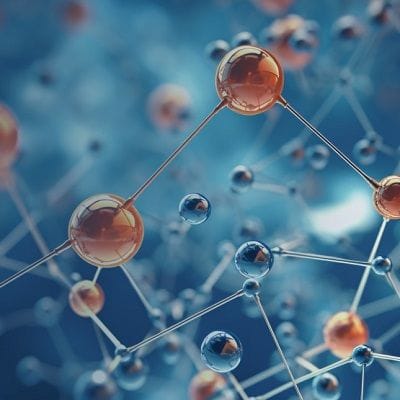Peptides have emerged as a revolutionary solution in the world of skin and age-related treatments. These naturally occurring amino acid chains play a significant role in regulating various biological functions, especially those related to skin regeneration, collagen production, and cellular repair. With the rising demand for non-invasive yet effective anti-aging solutions, Peptide Therapy in Dubai has gained significant attention due to its ability to combat wrinkles, improve skin elasticity, and promote youthful radiance without surgical interventions. Peptides act as signaling molecules that instruct the body to produce more collagen, elastin, and other proteins essential for healthy skin. As we age, the production of these vital proteins decreases, leading to visible signs of aging such as fine lines, sagging, and dullness. Peptide therapy focuses on reversing this process by enhancing the skin’s natural ability to heal and rejuvenate from within.
How Peptides Work for Anti-Aging
Peptides work by mimicking the body’s natural signals. When applied or injected into the body, they bind to receptors on cell surfaces and send specific messages to perform certain functions, such as healing damaged tissue, building new collagen, or reducing inflammation. This signaling function makes peptides a powerful agent for skin regeneration and age management. Anti-aging peptides are categorized based on their mechanism of action, including signal peptides, carrier peptides, enzyme inhibitor peptides, and neurotransmitter-inhibitor peptides. Each category has a different approach in targeting age-related skin concerns, offering a tailored solution depending on individual skin conditions and goals.
Top Peptides Known for Anti-Aging Benefits
Matrixyl (Palmitoyl Pentapeptide)
Matrixyl is one of the most researched and effective peptides in anti-aging skincare. It stimulates collagen production and improves skin elasticity. Users often report a visible reduction in wrinkle depth and an increase in skin firmness within a few weeks of consistent use.
Argireline (Acetyl Hexapeptide-8)
Commonly referred to as “Botox in a bottle,” Argireline helps reduce muscle movement beneath the skin, minimizing the formation of expression lines. It’s often used in topical serums and creams aimed at reducing crow’s feet and forehead lines.
Copper Peptides (GHK-Cu)
Copper peptides are powerful wound-healing agents that also stimulate collagen and elastin production. They are known to enhance skin clarity, tone, and texture while reducing inflammation and free radical damage.
Tripeptide-1 and Hexapeptide-12
These peptides support skin barrier function and repair damaged skin. They also improve the overall texture of the skin and enhance the absorption of other anti-aging ingredients.
Comparison of Common Anti-Aging Peptides
| Peptide Name | Primary Benefit | Best Used For |
|---|---|---|
| Matrixyl | Stimulates collagen production | Wrinkle reduction, skin firmness |
| Argireline | Reduces muscle contractions | Expression lines (forehead, eyes) |
| Copper Peptides | Anti-inflammatory, wound healing | Skin regeneration, texture repair |
| Snap-8 | Muscle relaxation | Deep wrinkles, frown lines |
| Tripeptide-1/Hexapeptide-12 | Skin repair and barrier function | Skin smoothness, product absorption |
Benefits
Improved Skin Elasticity
With enhanced collagen and elastin synthesis, the skin becomes more elastic and resilient. This leads to a visible improvement in sagging areas such as the jawline and under the eyes.
Hydration and Barrier Repair
Many peptides help maintain the skin’s hydration levels by strengthening the skin barrier. A healthy barrier prevents moisture loss and protects against environmental aggressors.
Reduced Inflammation
Certain peptides have anti-inflammatory properties, which help calm irritated skin, reduce redness, and support healing—ideal for aging skin that may also be sensitive.
Safe and Well-Tolerated
Most peptides used in therapy are biocompatible and cause minimal side effects. This makes peptide therapy suitable for a wide range of skin types and aging concerns.
Topical vs. Injectable Peptides
| Method | Application | Effectiveness |
|---|---|---|
| Topical | Creams, serums, lotions | Best for surface-level skin concerns |
| Injectable | Direct skin injections | Deeper penetration and faster results |
While topical peptides are effective for daily maintenance and mild signs of aging, injectable forms provide a more intensive treatment by delivering peptides directly into the dermal layer, where they can stimulate regeneration more effectively.
Who Can Benefit from Peptide Therapy?
Peptide therapy is suitable for adults of all ages, especially those starting to notice the early signs of aging. It is also a great option for individuals with sensitive skin or those looking for non-invasive rejuvenation solutions. Whether you’re in your late 20s aiming to prevent fine lines or in your 50s seeking to reverse signs of aging, peptides offer a versatile and effective option.
Peptide Therapy: A Growing Trend
With advancements in aesthetic treatments, Peptide Therapy is becoming increasingly popular among individuals looking for sustainable and science-backed anti-aging solutions. From luxury skincare brands to specialized wellness centers, peptide-based regimens are being widely adopted due to their effectiveness, safety, and ability to cater to diverse skin types and lifestyles in the region’s unique climate.
FAQs
What makes peptides different from other anti-aging ingredients?
Peptides communicate directly with skin cells to regenerate and heal from within, unlike many topical ingredients that only address surface-level concerns.
How long does it take to see results from peptide therapy?
Most users report visible improvements within 4 to 8 weeks of consistent use, although results may vary depending on the peptide used and the condition of the skin.
Can peptides be used with other skincare treatments?
Yes, peptides are generally safe to combine with other treatments like microneedling, lasers, or chemical peels, often enhancing their effectiveness.
Are there any side effects of peptide therapy?
Peptide therapy is well-tolerated by most individuals. Mild redness or irritation may occur initially but usually resolves quickly.
Is peptide therapy suitable for men as well?
Absolutely. Peptide therapy is effective for both men and women seeking natural and non-invasive anti-aging solutions.
Conclusion
In Summary, peptides offer a scientifically backed approach to aging gracefully by stimulating the body’s natural repair mechanisms. Whether applied topically or administered via injections, these amino acid compounds target the root causes of aging skin. As the demand for non-surgical rejuvenation continues to grow, peptide therapy stands out as a reliable and promising solution, especially with the rise of professional services offering Peptide Therapy.






























